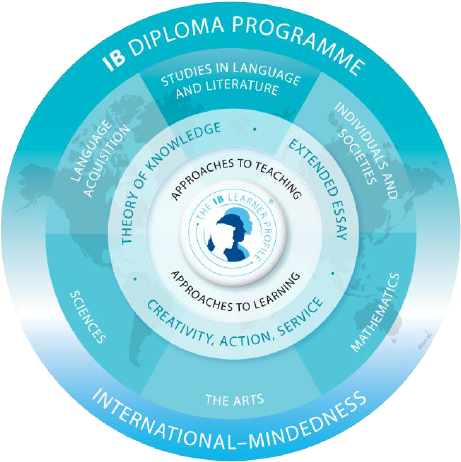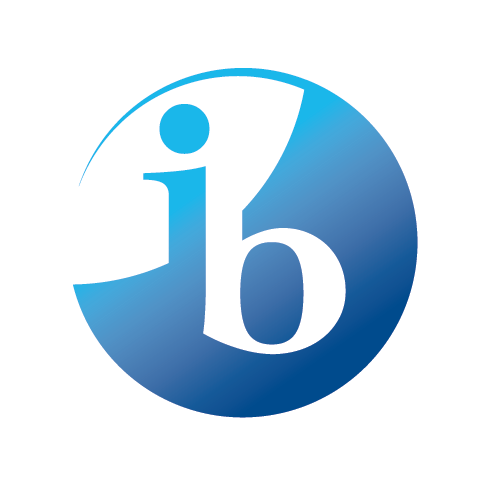
The programme is designed in the shape of a circle with six academic areas surrounding the core. Subjects are studied concurrently and students are exposed to the two great traditions of learning – the humanities and the sciences.
Diploma candidates at Gimnazija Bežigrad are required to select one subject from each of the six groups or as a sixth subject another one from groups 2, 3 or 4 (certain choices of subjects may not be possible). At least three but not more than four subjects must be taken at higher level (HL), the others at standard level (SL). HL courses represent 240 teaching hours whereas SL courses cover 150 hours. By arranging work in this fashion, students are able, over the two year period, to explore some of the subjects in depth and some others more broadly. The subject groups are:
- LANGUAGE A: First language (usually the student’s mother tongue) SL/HL
- LANGUAGE B: Second modern language – German SL/HL, English SL/HL, French SL/HL
- INDIVIDUALS AND SOCIETIES: Economics SL/HL, History SL/HL, Geography SL/HL, Philosophy SL/HL, Psychology SL/HL, Social and Cultural Anthropology SL/HL
- EXPERIMENTAL SCIENCES: Biology SL/HL, Chemistry SL/HL, Physics SL/HL, Computer science SL/HL
- MATHEMATICS: Analysis and approaches SL/HL, Applications and interpretation SL,
- Visual arts SL/HL
The availability of certain subjects is dependent on intake.
Other requirements
Diploma candidates are also required to fulfil the following:
- Write an extended essay of about 4000 words. This project offers the opportunity to investigate a topic of special interest and acquaints students with the kind of independent research and writing skills expected at university.
- Attend the Theory of Knowledge (TOK) course, which is an interdisciplinary course intended to stimulate critical reflection upon the knowledge and experience gained inside and outside the classroom. TOK challenges students to question the bases of knowledge, to be aware of subjective and ideological biases, and to develop a personal mode of thought based on analysis of evidence expressed in rational argument. The key element in the IBO’s educational philosophy, TOK seeks to develop a coherent approach to learning which transcends and unifies the academic subjects and encourages appreciation of other cultural perspectives.
- Creativity, Action, Service is known by its acronym. CAS is a fundamental part of the diploma curriculum. The CAS requirement takes seriously the importance of life outside the world of scholarship, providing the balance between academic self-absorption and the world beyond it. Participation in creative activities, theatre, sports, and community service activities encourages students to share their energies and special talents while developing awareness, concern and the ability to work co-operatively with others.
